Donhofer / Földvári
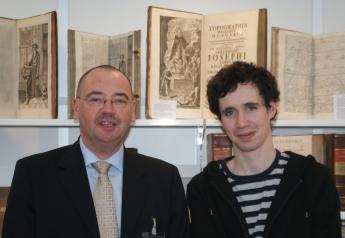
Zoltán Földvári and Norbert Donhofer
An interview by Barbara van Benthem
Vienna in the heart of Europe is loaded with cultural treasures. The Austrian capital is the home of the Fin de Siècle, and the cradle of Modernism: Sigmund Freud, Arthur Schnitzler, Adolf Loos, Ludwig Wittgenstein, Moritz Schlick and the „Vienna Circle“ of philosophy, Egon Schiele, Gustav Klimt, Kolo Moser and the „Wiener Werkstätte“. Budapest, Hungary’s capital, is closely connected with Vienna, geographically by the river Danube, politically and historically by the manifold influences of the Habsburg Empire which reigned half of Europe (and Hungary) for centuries.
Bibliophiles who love Vienna should travel to Budapest, too, visit Buda Castle and the Fisherman’s Bastion to enjoy the magnificent view over the city, then walk across the Chain Bridge over the Danube from “Buda” to “Pest” with its lively cultural scene. "Just down the Danube from Vienna lies Budapest – and it's well worth a visit. The flagship of the burgeoning Budapest art market is the Budapest Art Fair in November, now 15 years old and, according to a French participant gallery ‘getting better by the year’”, the Antiques Trade Gazette wrote in 2009. Far beyond the Budapest Art Fair visitors may expect a variety of galleries – and antiquarian book shops. Like London’s Cecil Court the “Múzeum körút” is crowded with old and rare books. The “Múzeum” was the main “antikvárium row” during the pre-World War I era, home to 37 different shops at that time – and it still is. The New York Times online travel guide recommends three rare book dealers on its shopping list: Among them is Központi Antikvárium based in Múzeum körút, opposite to the Hungarian National Museum. It opened in 1885 and is said to be the largest bookshop of this kind in central Europe.
The antiquarian book trade in Hungary is emerging. The young generation opens up to the international market and shows more and more that Budapest – like Vienna – is a European city full of cultural highlights, covering not only the history of arts, but the history of printing from its invention in the 15th century up to 20th century Avantgarde books. An interview with Zoltán Földvári (Budapest) and Norbert Donhofer (Vienna) about rare books in Hungary and the future of the antiquarian book trade.
What were the first and most famous books printed in Hungary?
Norbert Donhofer: One of the first books printed in Hungary was Basilius Magnus’ „De legendis poetis“, printed in Buda 1473 together with Xenophon’s „Apologia Socratis“. Even more famous is the „Chronica Hungarorum“, also printed in Buda 1473, in this first edition without mentioning the author who is added to the second edition, printed in Brno 1488: Johannes Thuróczy. The “Chronica” belongs to the national treasures of the Hungarians, along with the works of Michael de Hungaria, about whom nothing is known despite the extensive studies by Gedeon Borsa (published in Budapest 1998). Michael de Hungaria’s „Sermones tredecim universales“ were printed in Louvain in 1480 by Johannes de Paderborn and in Paris in 1501 by Jean Petit. 17 more editions were printed – like the preceding editions abroad, not in Hungary.
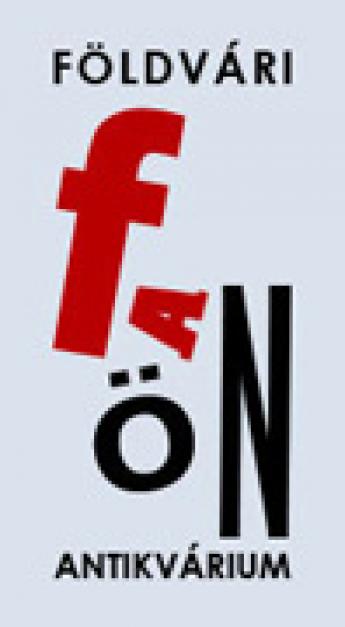
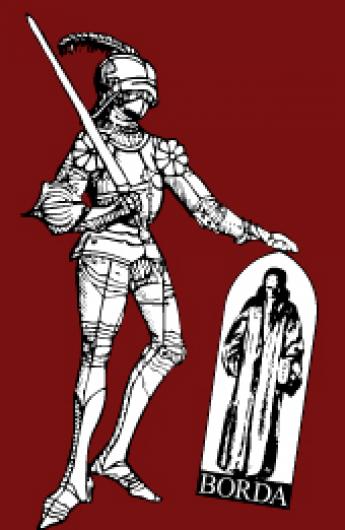
What happened during the following 200 years?
Norbert Donhofer: Hungary’s history was deeply affected by the battle of Mohács 1526 and the Turkish occupation which lasted over 150 years. Suleyman the Magnificent (1520–1566) attacked Hungary, captured Belgrade in 1521, and launched an attack against the weakened Kingdom, whose army was defeated on 29 August 1526. The Hungarians lost their independence, the country was left in turmoil, the centres of Reformation and were destroyed. Scholars and printers left the country, and went to Amsterdam or Leyden. A shining example is Nikolas Kis who improved his skills at the printing office of Blaeu in Amsterdam. After his return to Kolozsvár in the late 17th century he produced more than 100 finely printed books. However, the first book entirely written in the Hungarian language was not printed in Hungary, but in Kraków by Hieronymus Vietor in 1533: a translation of St. Paul’s Epistles. As bibliographers like Gedeon Borsa, Erzsébet Soltész or Bridget Guzner in the “Oxford Companion to the Book” point out, the most important Hungarian books were printed abroad up to the year 1700. No wonder, that there isn’t even a topography of Hungary, like Matthäus Merian’s topographies with beautiful woodcuts of German and Austrian cities and regions. Times were changing after the defeat of the Turcs in Vienna in 1683. With the Treaty of Karlovitz the Ottoman troups were forced to leave Hungary – which was then dominated by the Habsburg Empire. Throughout the 18th century printing offices opened in Budapest, Eger, Poszony (Bratislava), Györ, Sopron, Esztergom, Temesvar and Munkacs (now Mukacevo in the Ukraine). The most famous and at the same time most unknown book printed in Hungary is János Bolyai’s „Appendix“ to the „Tentamen Juventutem…“ written by his father Farkas Bolyai and printed 1832-1833. Only 160 copies are known of this rare work on geometry.
What about the antiquarian book trade in Hungary?
Zoltán Földvári: From a linguistic point of view, Hungary turns out to be an island. It’s the same as in Japan where you have a market with Japanese books almost exclusively for Japanese customers. Actually, there are not many people who speak the Finno-Ugric languages. Thus, many Hungarian dealers concentrate on Hungarian books for the Hungarian market. During the past 40 years there were only a few international dealers in Hungary. Most customers are Hungarians, some are Germans or – due to our history – Austrians. I hope this will change within the upcoming years.
Norbert Donhofer: On the other hand, Hungary has a long tradition in printing and in book collecting. Think of Matthias Corvinus (Mátyás Hunyadi, 1443-1490), King of Hungary from 1458 to 1490. The Bibliotheca Corviniana contained approximately 5.000 books and codices in magnificent bindings. Or Alexander Graf Apponyi. His huge collection is compiled in the bibliography „Hungarica. Ungarn betreffende im Auslande gedruckte Bücher und Flugschriften“, published in Munich 1903. A standard work. And here you see it again: Many of the books listed in the “Apponyi” were printed in the Hungarian language, but not in Hungary. There are many more collectors and wealthy dynasties, who all possessed magnificent libraries, among them the Esterházy, the Batthyány, and the Szechenyi families. The National Library is named after the Szechenyi’s. All these names show that there were always close relations between the Austrian and the Hungarian rare book dealers and collectors. It is a great pity that this tradition was interrupted for a very long time by the Communist regime, although the Hungarian booksellers even succeeded in running private auctions under the Communists.
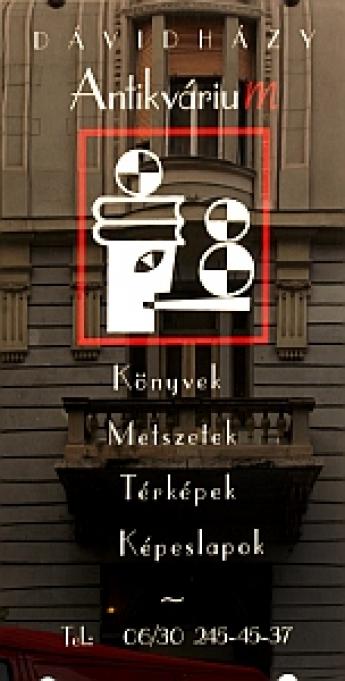
What do you think about the future of rare bookselling in Hungary?
Norbert Donhofer: There has always been an antiquarian book market, with important collectors and collections. After 50 years of stagnation between the 1940s and 1990 the market is recovering, and the rare book dealers are reorganizing their business. The Hungarian book dealers are looking to the West. Young colleagues like Zoltán Földvary or Ádám Bősze exhibit at antiquarian book fairs abroad, have websites in the Hungarian language and in English. The young generation of Hungarian dealers is very active, a very interesting development.
Zoltán Földvári: It’s more than an opening to the international market. It’s a kind of revolution. The structures and the customs of the Hungarian trade are radically changing.
How does it change?
Zoltán Földvári: The traditional antiquarian book trade is completely different in Hungary: Lajos Borda, for example, is one of the very few dealers who have been doing catalogues for many years. Most booksellers run small shops, mainly in Budapest, the better ones are situated in the „Múzeum körút“. Auctions play a big role. In Hungary everyone is selling his books at auctions. Every antiquarian booksellers is running auctions. All these auctions cover a wide range of rare books from 20 to 20.000 forint, with up to hundreds of visitors for each auction. Meanwhile other activities become equally important. Antiquarian booksellers have been exhibiting at the Budapest Art Fair since 2007. Others are attending international book fairs. I took part in the Frankfurt Book Fair in October 2009. Ádám Bősze, specialist in music autographs and books, exhibited in Leipzig in March 2010. The internet is our media of the future: The platform www.bookline.hu offers antiquarian books, too.
Mr Földvári, how did you become involved in the rare book business?
Zoltán Földvári: I was a collector, and started as a rare book dealer four years ago.
Are you specialized?
Zoltán Földvári: I am specialized in Avantgarde books, Judaica, 20th century literature, philosophy, and photography. Rare books on art and literature have always been my special interests. The Avantgarde books printed in Hungary and Eastern Europe are masterpieces. Like all Hungarian dealers my first catalogue in 2007 was an auction catalogue, with about 300 lots, mainly Avantgarde books and 20th century literature, art and philosophy. Now, I concentrate on book fairs and on the internet. My shop is open by appointment.
Do you remember the most extraordinary book you ever sold or bought?
Zoltán Földvári: As I am devoted to modern art and literature, it was “DADA” by Tristan Tzara and a collection of books by Lajos Kassák. Kassák’s famous work “Tragédiás figurák“ was printed in Budapest in 1919 with the author’s portrait and a cover illustration by Sándor Bortnyik.
How many antiquarian booksellers are there in Hungary?
Zoltán Földvári: There are about 60 antiquarian booksellers. Most of them are dealing with used books rather than with rare books. Between 10 or 20 colleagues are concentrating on the high-end of the trade, for example Lajos Borda, Ádám Bősze or György Márffy. The majority of Hungarian dealers is situated in Budapest, there is, for example, only one dealer in Zebegény: Lajos Borda.
Are they organized?
Norbert Donhofer: The Magyar Antikváriusok Egyesületéhez (MAE), the Hungarian Antiquarian Booksellers’ Association, has 13 members. The association was founded in 2004, with Lajos Borda as president. Borda retired in 2010. Ádám Bősze from Vivace Antikvarium (www.musikantiquariat-bosze.eu ) was elected as their new President and this is pretty good choice as Ádám – like Zoltán – is a very active bookseller, he is multilingual, speaks German, English, and a bit of Russian. That’s why I am sure that the new MAE led by a young bookselling generation might be able to join the international market in the near future. The first steps are done: They are working on a code of ethics and good practice for Hungarian rare book dealers, their webmaster Karoly Danko is building a website for the Hungarian Association.
What can the ILAB do for the future of the rare book business?
Zoltán Földvári: Quality and professionalism are the keywords of the rare book trade. That’s why the Code of Ethics and Good Practice upheld by the League is essential. Everyone who is involved in the antiquarian book trade worldwide should support its ideas.
Norbert Donhofer: For young dealers in emerging countries the League can be an important step into the international market. It’s a chance for them to build up new contacts and to introduce themselves to customers and colleagues worldwide at ILAB Book Fairs. The ILAB Metasearch is the ideal platform for high quality offers in the internet. And this becomes more and more important: There are thousands of used book dealers in the internet. Under ILAB’s roof the real rare book dealers adhere to the international standards of high quality and professionalism. It’s a question of confidence, nowadays as well as 60 years ago.
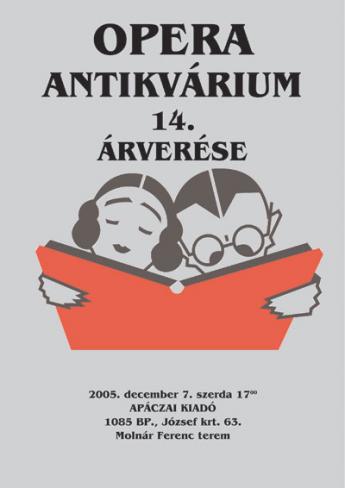
Rare Booksellers in Hungary
Amicus Antikvárium
Miklós Walloschek
Király utca 81
Budapest
auctions, general stock, foreign languages, prints, maps, postcards
website (Hungarian) - www.amicusantikvarium.hu
Múzeum Antikvárium
Károly Antal
Múzeum körút 35
Budapest
catalogues, general stock, foreign languages, prints, maps, photographs
website (English and Hungarian) - www.muzeumantikvarium.hu
Központi Antikvárium
György Márffy
Múzeum körút 13-15
Budapest
auctions, general stock, prints, maps, bibliophile editions, autographs, manuscripts, incunabula, early printed books related to Hungary
website (Hungarian) - www.kozpontiantikvarium.hu
Szőnyi Antikváriuma
Endre Szőnyi
Szent István körút 3
Budapest
auctions, general stock, foreign languages, prints, maps, postcards
website (Hungarian, English and German) - www.szonyi.hu
Adam Bosze Music Antiquarian
Ádám Bősze
Királyi Pál utca 18. I/2
Budapest
music: books and autographs
website (Hungarian and German), Facebook site - www.musikantiquariat-bosze.eu
Borda Antikvárium
Lajos Borda
Bartóky József utca 1.
Zebegény
general stock, prints, maps, postcards, photographs, bibliophile editions, autographs, manuscripts
website (Hungarian) - www.borda.hu
Atticus Antikvárium
Károly Schneller
Asbóth utca 19
Budapest
auctions, general stock, prints, maps, postcards
no website
Antiquarium Hungaricum
Frigyes Kárpáti
Múzeum körút 29
Budapest
auctions, prints, drawings, maps, travel, general stock
website (Hungarian) - www.varium.hu
Pastinszky Antikvárium
Krisztina K. Pastinszky
Ignátovity utca 2
Szentendre
auctions, history, photography, postcards
website (Hungarian) - www.pastinszkyantikvarium.hu
Opera Antikvárium
Ferenc Bak
Hajós utca 7
Budapest
auctions, general stock, foreign languages, prints, maps, postcards
website (Hungarian) - www.opera-antikvarium.hu
Városfal Antikvárium
Ferenc Bak
Múzeum körút 27
Budapest
general stock, foreign languages, prints, maps, postcards
website (Hungarian) - www.opera-antikvarium.hu
Földvári Antikvárium
Zoltán Földvári
Királyi Pál utca 10. III/4
Budapest
auctions, Avantgarde, Judaica, bibliophile editions, prints, photographs, contemporary art
website (Hungarian and English) - www.foldvaribooks.com
Dávidházy Antikvárium
Károly Dankó
Galamb utca 7
Budapest
autographs, Avantgarde
website (Hungarian) - www.davidhazy.hu
